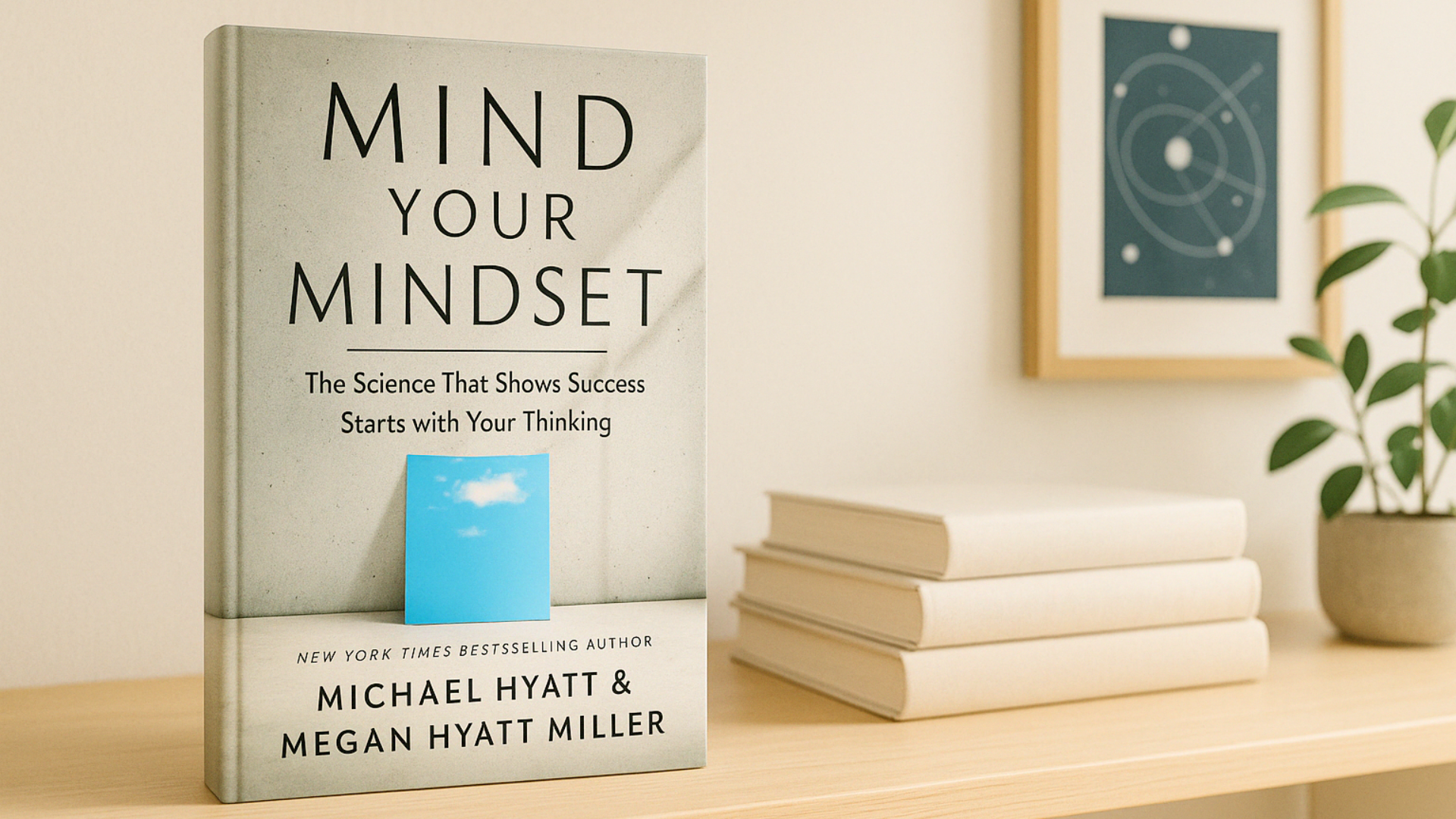Mind Your Mindset and the Power of Reframing Thoughts

Book Review: Mind Your Mindset by Michael Hyatt and Megan Hyatt Miller
A science-backed and story-driven guide to rewriting the internal narratives that shape your success
In Mind Your Mindset, father-daughter leadership duo Michael Hyatt and Megan Hyatt Miller explore how the stories we tell ourselves shape what we believe is possible. Drawing on neuroscience, coaching experience, and personal reflection, they explain how success often hinges not on strategy or resources, but on the meaning we assign to our experiences.
This is not a motivational book full of platitudes. It is a clear, research-informed framework for understanding how the brain constructs stories and how we can begin to challenge and reframe them. The tone is encouraging, but not overhyped. The message is simple, yet deeply relevant to anyone seeking meaningful growth in work, relationships, or personal vision.
What the book promises
The book promises to help readers identify the limiting stories that hold them back and replace them with narratives that are more accurate, empowering, and aligned with reality. Hyatt and Miller suggest that our interpretations of events, more than the events themselves, shape our outcomes.
Using insights from neuroscience, the book introduces a practical, three-part model: identify the story, interrogate the story, and imagine a better story. These steps are meant to be repeatable and adaptable across all areas of life, from business to parenting to health.
The authors promise clarity, encouragement, and a replicable process that readers can begin using right away. And they deliver.
What the book delivers
The heart of the book is the idea that the brain is not a passive recorder of events. It is a storyteller, always interpreting, filtering, and filling in gaps. Hyatt and Miller explain how these stories often operate beneath our awareness, and how changing them can shift everything from confidence to performance.
Their three-step process is simple, but not simplistic:
- Identify the story you are telling yourself about a situation.
- Interrogate the story by asking what else could be true.
- Imagine a better story that leads to action, growth, or connection.
Each chapter illustrates these steps through relatable stories, including examples from the authors’ leadership journeys, coaching sessions, and personal lives. The result is a book that feels lived-in, not theoretical.
What stands out is the emphasis on compassion. The book is not about forcing positive thinking or denying pain. It is about creating space for curiosity and new meaning. By making the process feel accessible, the authors give readers permission to question the thoughts that have quietly shaped their limits.
Style and structure
The tone is conversational, clear, and supportive. Hyatt and Miller alternate voices at times, but their writing feels cohesive and steady. They share their own missteps and insights with honesty, which builds trust with the reader.
Chapters are short and well-organized, with helpful summaries and reflection questions throughout. This structure supports both deep reading and quick reference. The inclusion of neuroscience adds credibility, but the science is always explained in plain language.
The pacing is smooth, and the repetition of key ideas reinforces the central framework without becoming tedious. Readers are reminded that mindset work is not a one-time event. It is a practice.
Where the book shines
Mind Your Mindset shines in its clarity. The storytelling framework is memorable and easy to apply. Readers will likely walk away not just inspired, but equipped to notice their own thinking patterns and start making different choices.
The book also succeeds in bridging insight and action. It does not just explain why stories matter. It helps readers understand how to work with those stories in real time. This balance between reflection and practical action is especially valuable for readers who want something they can use immediately.
Another strength is the tone of emotional safety. The authors avoid judgement or pressure. Instead, they invite the reader into a process of curiosity and experimentation. That tone will resonate with high-achieving readers who are often hard on themselves or stuck in overthinking loops.
Light limitations
Some readers may find the framework overly simple at first glance. While the process is powerful, those looking for complex psychological theory or diagnostic tools may need to supplement the book with deeper resources.
The examples lean toward personal and professional development scenarios that may feel more relevant to leaders, entrepreneurs, or those already familiar with coaching language. However, the ideas are broad enough to be adapted by readers in many different contexts.
Occasionally, the tone leans corporate, reflecting the authors' leadership backgrounds. Readers who prefer a more intimate or literary voice may find it less emotionally layered than other self-development books. Still, the sincerity and clarity carry the message well.
Final thoughts
Mind Your Mindset is a thoughtful, practical guide to shifting the inner stories that shape how we live, work, and connect. Michael Hyatt and Megan Hyatt Miller offer readers a toolset for moving beyond unconscious limits and toward intentional growth.
This book is not about ignoring reality or forcing positivity. It is about choosing to see more fully and to tell stories that lead to possibility rather than fear. By helping readers slow down and question their narratives, the authors create room for new action and greater alignment with what truly matters.
Highly recommended for readers in leadership, transition, or creative work who want to better understand the role of mindset in shaping results.